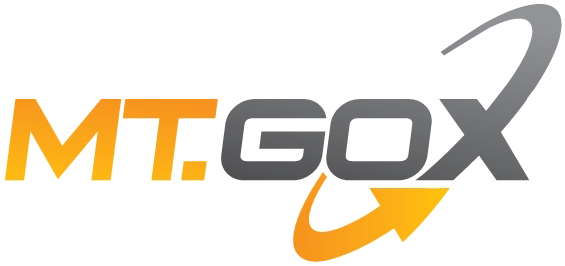
Jed McCaleb boasts an impressive, albeit messy, crypto resume. The serial blockchain founder built the platform behind one of the industry’s most catastrophic exchange collapses but is responsible for two of the largest and most recognizable cryptocurrencies.
Founder of both Ripple (XRP) and Stellar (XLM), McCaleb is no stranger to the limelight. He’s proven himself a capable programmer with a grand vision. Yet, his management style and behavior have drawn the ire of his peers, including Ripple CTO David Schwartz.
Who is Jed McCaleb? Is the crypto billionaire a visionary or another San Francisco tech mogul whose legacy can be reduced to “a long string of bad ideas?”
Table of Contents
Who is Jed McCaleb?

Jed McCaleb is an American computer programmer and entrepreneur. Best known as the blockchain pioneer behind Ripple Labs and Stellar, the crypto tycoon has built out some of the industry’s most iconic platforms.
Sponsored
But that’s just the tip of the iceberg. In the early days of the internet, McCaleb developed a popular file-sharing network. The service helped people all over the world transfer music, games, and files all over the world, indicating that Jed has always believed in permissionless, decentralized systems.
While it would appear that Jed McCaleb championed cryptocurrency’s fundamental values throughout his career, the Ripple co-founder has never been far from controversy and disaster.
Sponsored
What journey led him from a small-town Arkansas to a regular on the Forbes Billionaire List?
Education
Born and raised in Fayetteville, Arkansas, Jed McCaleb didn’t waste time leaving school. He headed straight for the bright lights of California to pursue his dreams of becoming a software engineer.
In 1994, the future star of the Stellar Development Foundation enrolled at UC Berkeley. Despite having a keen interest in programming from a young age, formal education didn’t work out for McCaleb, who dropped out of the university and moved to New York City.
Jed McCaleb’s Pre-Crypto Career
McCaleb’s first major success came from eDonkey2000, a file-sharing network he created in 2000. At its peak, eDonkey boasted over 4 million active users, making it one of the largest file-sharing networks of its time.
The eDonkey network became a victim of its own success, drawing scrutiny from the music industry. The Recording Industry Association of America (RIAA) accused McCaleb and his co-creators of enabling copyright infringement. The resulting lawsuit was settled outside the courtroom to the value of $30M USD.
After eDonkey2000, McCaleb co-founded MetaMachine, a company that developed eDonkey’s successor, eMule. After hearing about some radical new muse called cryptocurrency and blockchain technology, he sold his stake in the company to focus on new pursuits.
Jed McCaleb in Crypto
Jed McCaleb’s early career proved a few things. For one, he was an innovative and capable programmer who could turn creative ideas into reality. Second, he valued open distribution and permissionless data sharing.
Having dropped out of a prestigious college shortly after enrolling, McCaleb was no stranger to thinking outside the box and taking the road less traveled.
Unsurprisingly, this combination of character traits brought him to the digital world’s latest frontier of innovation, blockchain technology.
Mt. Gox
Shortly before 2008’s global financial crisis and Satoshi Nakamoto’s lightbulb moment that would change finance forever, Jed McCaleb dreamed of creating a site where collectors could trade Magic: The Gathering cards and purchased the mtgox.com domain.

The card trading site never emerged, but McCaleb repurposed the domain into a Bitcoin trading platform where keen investors could actively trade BTC/USD markets.
Under McCaleb’s stewardship, Mt. Gox rapidly grew in prominence, handling over 70% of all Bitcoin transactions at its peak to become the world’s largest Bitcoin exchange.
In 2011, McCaleb sold the exchange to Mark Karpelès. It would appear that the founder had dodged a bullet when, years later, in 2014, a devastating hack brought the exchange to its knees. The loss of 850,000 bitcoins destroyed confidence in the crypto market, with Mt.Gox still fighting to recover lost funds.
Ripple (XRP)
After he departed from Mt. Gox, Jed McCaleb sought new ways to use cryptocurrency to improve the global economy. Joining forces with Chris Larsen, the pair founded Ripple Labs in 2012 with the vision of revolutionizing cross-border payments.

McCaleb’s role in Ripple shaped its early vision and technological framework. Designed as an all-new and improved Bitcoin alternative, Ripple’s unique consensus mechanism was revolutionary then.
The platform aimed to bridge the gap between traditional finance and the burgeoning world of crypto, offering faster transaction speeds and reduced fees at an institutional scale.
However, as with many startups, the internal dynamics were complicated. McCaleb soon found himself at odds with fellow founders over the strategic direction of Ripple.
Ripple’s CTO, David Schwartz, has been particularly vocal about his displeasure with Jed McCaleb’s conduct. He implies that McCaleb betrayed investors and employees and that several of his ideas were “generally considered a disaster.”
As you can imagine, these constant disagreements resulted in McCaleb swiftly leaving the company he created after just two years.
As part of his separation agreement, McCaleb was required to transfer two million XRP tokens to a charitable organization of his choice.
Stellar (XLM)

Emerging from the shadows of his Ripple exit, Jed McCaleb founded the Stellar Development Foundation, a non-profit organization, in 2014 alongside co-founder Joyce Kim.
A direct competitor to Ripple, the Stellar network aimed to address some of the perceived shortcomings McCaleb identified during his time at Ripple.
Stellar, with its native token XLM, was designed to expedite cross-border payments, much like Ripple. However, its mission was distinctively more altruistic.
While XRP is aimed at traditional financial institutions, Chief Architect McCaleb wants Stellar to serve as a financial bridge for the world’s unbanked populations, ensuring that even those without access to existing banking systems could benefit from the advantages of digital currency.
Under McCaleb’s leadership, Stellar proved itself a capable ecosystem, establishing partnerships with major financial institutions and tech giants like MoneyGram. Despite struggling to reach Ripple’s level of notoriety, Stellar has still managed to make a name for itself in the crypto market.
What’s Next for Jed McCaleb?
Jed McCaleb is committed to fulfilling Stellar’s ambitious vision for the foreseeable future. The Stellar Network and ecosystem continue to expand, with new functionalities like smart contracts increasing the blockchain’s capabilities.
Alongside his responsibilities at Stellar, McCaleb founded Vast, an aerospace startup dedicated to developing artificial gravity systems.
On the Flipside
- There’s no denying that Jed McCaleb has an impressive range of startups. However, you can’t ignore that each project has finished badly. eDonkey was handed a cease-and-desist notice and sued to the value of $30M USD. The Mt.Gox hack resulted in the loss of 850,000 BTC, and his Ripple Labs peers are scathing of his time at the company.
Why This Matters
Jed McCaleb founded two of the biggest cryptocurrencies in the industry and founded the now-defunct Mt.Gox Bitcoin exchange. Regardless of your opinion, McCaleb has played a critical role in the growth and development of the crypto space.
FAQs
Jed McCaleb left Ripple in 2013 to create Stellar, a competing network based on similar principles.
According to the Ripple team, Jed McCaleb sold all of his XRP holdings in July 2022. The co-founder originally held around 9B XRP tokens.
Jed McCaleb left XRP and the Ripple Labs team following repeated disagreements about the direction and strategy of the company. Ripple’s CTO David Schwartz said, ‘Jed had a long string of bad ideas that Ripple’s Board of Directors refused to implement.’
